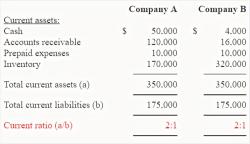What is the importance of financial analysis?
Financial analysis is a critical component of business management and decision-making. It involves evaluating and interpreting a company's financial data to assess its financial health, performance, and viability. The importance of financial analysis in business can be summarized in the following ways:
Assessing Financial Health: Financial analysis helps determine whether a company is financially stable, solvent, and capable of meeting its financial obligations. It provides insights into the organization's liquidity, profitability, and financial leverage.
Performance Evaluation: Businesses use financial analysis to measure and compare their financial performance over time. This can help identify trends, strengths, weaknesses, and areas in need of improvement.
Risk Assessment: Financial analysis helps in assessing various financial risks, such as credit risk, market risk, and operational risk. It allows companies to make informed decisions to mitigate these risks.
Investment Decisions: Investors and creditors rely on financial analysis to evaluate the financial health of a company before making investment or lending decisions. It helps them assess the potential return on investment and the risk associated with it.
Strategic Planning: Financial analysis plays a crucial role in strategic planning and budgeting. It helps businesses set financial goals, allocate resources, and make informed decisions on how to achieve those goals.
Cost Control: By analyzing financial data, companies can identify cost drivers, manage expenses, and improve cost control measures. This can lead to greater cost efficiency and higher profitability.
Resource Allocation: Financial analysis assists in making decisions about the allocation of resources, such as capital, labor, and assets. This ensures that resources are utilized effectively to achieve the company's objectives.
Valuation: It helps in determining the value of a company or its assets, which is essential for mergers and acquisitions, sale of the business, or financial reporting purposes.
Compliance and Reporting: Accurate financial analysis is crucial for regulatory compliance and financial reporting, such as preparing financial statements, tax returns, and annual reports for shareholders and government agencies.
Benchmarking: Companies can compare their financial performance with industry peers or competitors to identify areas where they excel or lag behind. This benchmarking can guide strategies for improvement.
Communication: Financial analysis provides a common language for communicating financial information within the organization, making it easier for management, employees, and stakeholders to understand the company's financial position.
Creditworthiness: It helps a business maintain a good credit rating and access financing at favorable terms. A strong financial position can lead to lower interest rates and better credit options.
In summary, financial analysis is vital for sound business decision-making. It provides a comprehensive view of a company's financial health and performance, guiding strategic planning, resource allocation, and risk management. Effective financial analysis is essential for a company to thrive and remain competitive in the ever-changing business environment.
The Importance of Financial Analysis in Business
Financial analysis plays a crucial role in the success and stability of businesses. It provides valuable insights into a company's financial health, performance, and prospects, enabling informed decision-making and strategic planning. Financial analysis helps businesses:
Assess their financial strength and stability: By analyzing financial statements, businesses can evaluate their profitability, liquidity, and solvency. This information is essential for maintaining investor confidence, securing financing, and making informed investments.
Identify areas for improvement and growth: Financial analysis can help businesses pinpoint areas where they can improve profitability, reduce costs, and enhance operational efficiency. This leads to better resource allocation and informed strategic decisions.
Make informed investment decisions: Businesses use financial analysis to evaluate potential investments, such as new product launches, market expansions, or acquisitions. This helps them assess the potential risks and rewards of different investment options.
Manage risk and make informed decisions: Financial analysis helps businesses identify and quantify potential risks, such as market fluctuations, credit risks, and operational risks. This allows them to develop strategies to mitigate these risks and protect their financial stability.
Enhance communication and transparency: Financial analysis provides a standardized language for communicating financial information to stakeholders, including investors, creditors, and management. This enhances transparency and accountability within the organization.
Decision-Making and Strategic Planning through Analysis
Financial analysis serves as a foundation for effective decision-making and strategic planning in businesses. By analyzing financial data, businesses can:
Set realistic financial goals and objectives: Financial analysis helps businesses establish achievable financial targets based on their current financial position, market conditions, and competitive landscape.
Develop and evaluate strategic initiatives: Businesses use financial analysis to assess the feasibility and potential impact of strategic initiatives, such as new product launches, market expansions, or acquisitions.
Evaluate performance and make adjustments: Financial analysis allows businesses to track their performance against their financial goals and make necessary adjustments to their strategies as needed.
Identify and prioritize investment opportunities: Financial analysis helps businesses identify and prioritize investment opportunities that align with their strategic goals and financial capabilities.
Financial Analysis for Risk Assessment and Management
Effective financial analysis is crucial for risk assessment and management in businesses. By analyzing financial data, businesses can:
Identify potential risks: Financial analysis helps businesses identify potential financial risks, such as credit risks, market risks, operational risks, and regulatory risks.
Quantify and assess the impact of risks: Businesses can use financial analysis to quantify the potential financial impact of identified risks and assess their likelihood of occurrence.
Develop risk mitigation strategies: Financial analysis informs the development of risk mitigation strategies, such as hedging, insurance, diversification, and contingency plans.
Monitor and manage risks on an ongoing basis: Businesses continuously monitor and manage risks through financial analysis, making adjustments to their risk mitigation strategies as needed.
Communicating Results and Insights from Financial Analysis
Effective communication of financial analysis results and insights is essential for informed decision-making and stakeholder engagement. Businesses should:
Prepare clear and concise financial reports: Financial reports should be presented in a clear, organized, and easy-to-understand format, using appropriate financial terminology and visualizations.
Tailor communication to different audiences: Financial communication should be tailored to the specific needs and understanding of different audiences, such as investors, creditors, and management.
Use storytelling and data visualization: Storytelling techniques and data visualization tools can make financial information more engaging and understandable for non-financial audiences.
Hold regular meetings and presentations: Regular meetings and presentations can provide opportunities to discuss financial results, insights, and implications with stakeholders.
Professional Growth and Career Opportunities in Financial Analysis
Financial analysis is a highly valued skill in the business world, offering professionals numerous career opportunities and advancement potential. Here are some of the benefits:
High demand and competitive salaries: Financial analysts are in high demand across industries, and they typically command competitive salaries and benefits packages.
Diverse career paths: Financial analysts can pursue diverse career paths in various sectors, such as corporate finance, investment banking, consulting, and financial services.
Opportunities for specialization: Financial analysts can specialize in specific areas, such as financial modeling, risk management, investment analysis, or corporate valuation.
Continuous learning and professional development: The field of financial analysis is constantly evolving, providing opportunities for continuous learning and professional development.
Global career opportunities: Financial analysis skills are globally recognized, opening doors to international career opportunities.











